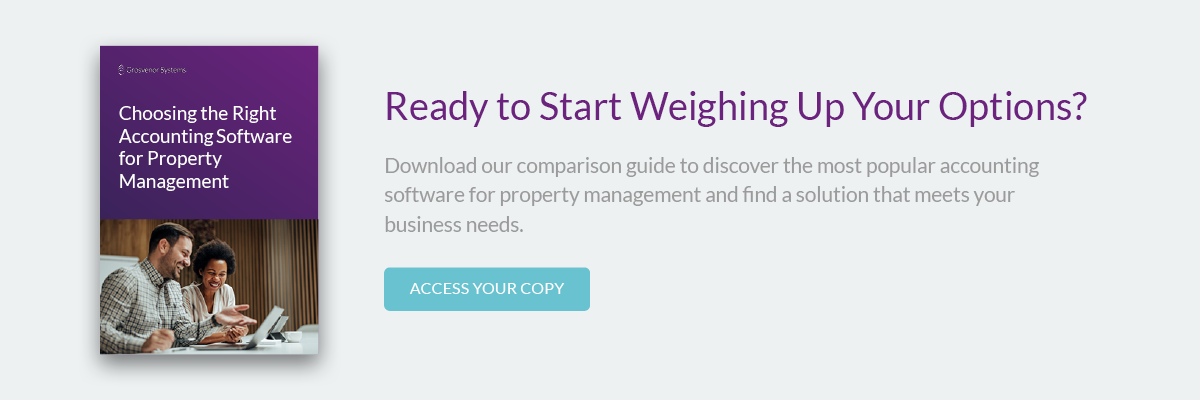How to Conduct Effective Budget Planning for Property Management
Budget planning is a colossal task that requires our attention every year. But how can we make it feel easier? Better yet, how do we make sure it's both efficient and accurate, helping us carry out activities for the following 12 months? Read on to find out.

Effective budget planning tips
Planning for an entire year can be overwhelming, but a few tips and tricks will make it easier to get your annual plan together without missing anything out.
Segment costs for clarity
Segmenting costs makes your budget easier to use as the year progresses — but it also makes them easier to plan in the interim.
First, break costs into different functions, listing them as marketing, software, utilities etc. Then split these costs again to show one-time and recurring fees. You can add to each of these sections and ask the relevant specialists in your team to add any fees you might not have thought about.
Working this way makes your financial budget more granular and ensures you can brainstorm every possible fee without any obvious spending slipping through the net.
Tip: When segmenting your costs, skip ahead to the property management budget checklist section of this blog for some inspiration.
Make data-driven decisions
Now you know which costs should sit where in your property management budget, it’s time to get a clear idea of what figure you should allocate to each item.
Everyone knows an efficient budget isn’t a result of a guessing game. So, do your research to make more accurate, data-driven decisions. Look within as well as outwards, conducting research of the wider marketplace, as well as reviewing historical data to work out average spend.
Add a contingency
When budgeting, you should always account for the unexpected. Whether it’s more money on maintenance than you imagined or a steeper spend on property promotion, there’s always something that can blow your budget.
But if your budget has a contingency built into it, it can’t be blown. An additional 10% of your total budget is a good number to aim for. In the worst-case scenario, this will cover any unexpected bills. At best, you can carry the budget through to next year and save it for a rainy day.
Use an integrated accounting system
Make the entire process easier and quicker by using an integrated accounting system. Having all of your financial and administrative data in one place means most of the budget planning exercise is done for you with easy-to-access records coming from that all-important single source of truth.
Having your hands on this type of software means you’re working on compiling budget insights all year so annual budget planning becomes less complicated.
Property management budget planning checklist
Leave no category untouched with our simple checklist below. From marketing to maintenance, we’ve thought of everything you might need to account for in your annual property management budget.
- Salaries & commissions
- Management & listing fees
- Marketing & advertising
- Software & subscriptions
- Physical supplies
- Utilities
- Cleaning & maintenance
- Tax
- Depreciation & debts
- Insurance
- Miscellaneous costs
- Travel expenses
Other factors to consider when budget planning
Don’t forget — every annual budget is different. While property management principles stay much the same, the external environment is subject to change, demanding you to think about timely topics as well as long-standing budgeting rules.
Company objectives
Think about the position of your company at the time of budgeting. Do you intend to embark on a period of growth in the next 12 months? If so, you’ll likely need to adjust your budget to accommodate this.
Similarly, is your company facing financial difficulties? It’s wise to be realistic about even the ugliest of payments.
Inflation
Inflation is expected as the economy matures. Whether it’s an increase in production costs or a rise in consumer demand, many things can impact the cost of goods and services and, in turn, cause a knock-on effect on purchasing power.
Always be aware of the current inflation rate when setting your spending for the year.
Social, economic and political influences
Any seemingly small social, economic and political influence can have a direct impact on your business, especially if it’s related to your specific industry. Look at what’s going on around you, survey your competitors and the market as a whole to inform your budgeting decisions.
Conducting a PESTLE analysis will allow you to create a comprehensive overview of your external environment without going overboard.
Learn how to reduce accounting inefficiencies and deliver valuable insights for your business
When it comes to finding the best accounting software for property management, there are a host of options available, and establishing which is the right one for you isn't always easy.
Our free resource compares various factors, including cost, integration, reporting capabilities, and data accuracy, to help you make the right move.
.png?width=1920&height=941&name=GS%20white%20clear%20(Large).png)

